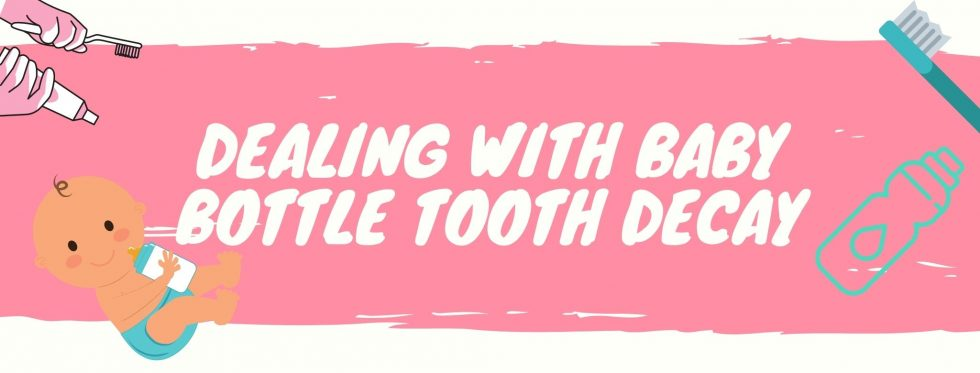Even though they are just temporary baby teeth, your baby’’s baby teeth are vital, and are still able to get cavities. Baby bottle tooth decay in infants, babies and toddlers is often called as Baby Bottle Tooth Decay, or Early Childhood Caries. Baby’s need strong, healthy teeth to chew their food, speak and have a beautiful smile. Their first teeth also help make sure their adult teeth come in properly and correctly. It is so important to start infants off with good oral dental care to help protect their teeth for years to come.
What Causes Baby Bottle Tooth Decay?
Baby Bottle Tooth Decay commonly happens in the upper front teeth, but other teeth may also be victims of this health issue.
There are a variety of issues which can cause this version of tooth decay. One frequent cause is the common, over exposure of the baby’s teeth to drinks that contain natural sugar. Tooth decay can occur when the baby is put to bed with a bottle to sleep, or when a bottle is used as a pacifier for a loud crying baby.
Child tooth decay is a disease that can start with cavity causing bacteria being passed from the mom to the infant. These bacterias are passed through the saliva and spit. When the mom puts the baby’s feeding spoon in her mouth, or cleans a pacifier in her mouth, the bacteria can be passed to the baby that way.
If your baby or toddler does not get an adequate amount of fluoride daily, they may also have an increased risk for tooth decay. The good news is that baby tooth decay is preventable. And baby tooth decay does not mean you are a horrible parent.
Preventing Baby Bottle Tooth Decay
- Do not share saliva with the baby through common use of feeding spoons or licking pacifiers.
- After each feeding, wipe your child’s gums with a clean, damp gauze pad or washcloth.
- When your baby’s teeth come in, brush them gently with a kid toothbrush and a smear a little amount of fluoride toothpaste until the age of 3.
- Brush the teeth with a small amount of fluoride toothpaste from the ages of 3 to 6.
- Supervise brushing until your child can be counted on to spit and not swallow toothpaste—usually until they are 5 years old…if they do not understand the concept after 5…you have bigger issues.
- Place only formula, milk or breast milk in bottles as bottles are not supposed to be used for other liquids such as 7up or coke.
- Infants should finish their bedtime and nap time bottles before going to sleep. No bottles in the crib.
- If your child uses a pacifier, provide one that is clean — don’t dip it in sugar or honey that is a breeding ground for baby tooth decay and diabetes.
- Encourage your baby to drink from a cup by his or her first birthday.
- Encourage healthy eating habits such as veggies and the enjoyment of water.
When your child’s first tooth appears, talk to your dentist about scheduling the first dental visit. Treat the first dental visit as you would a well baby checkup with the child’s physician. Remember: starting early is the key to a lifetime of good dental health.
Make sure your child enjoys going to the dentist.

